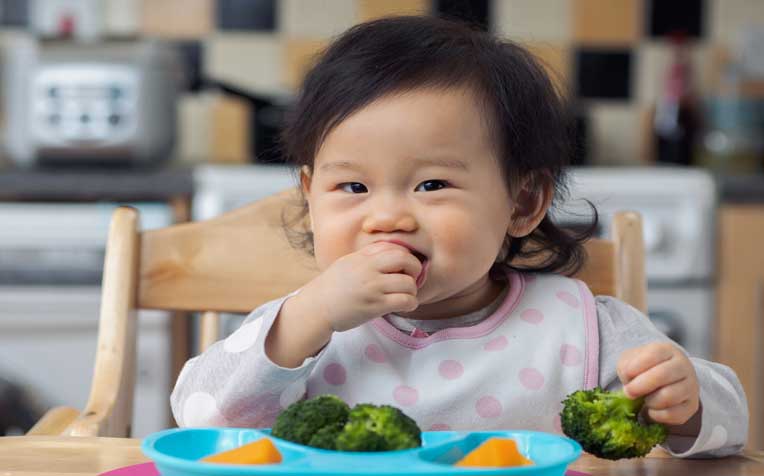HealthXchange will NEVER ask you to transfer money over a call. If in doubt, call the 24/7 ScamShield helpline at 1799, or visit the ScamShield website at www.scamshield.gov.sg.
Do’s and Don’ts of Feeding Toddlers and Children Under 3 Years Old

Allow your child to feed himself/herself, including using fingers.
“Children aged 1 year and above can eat adult foods and partake in family meals. So do not serve porridge at every meal. Even with changes in the ingredients added, the porridge will still be similar in look and taste. Even adults would reject porridge if we have been eating it twice daily for 6 months!” says the Department of Nutrition and Dietetics at KK Women’s and Children’s Hospital, a member of the SingHealth group.
DO NOT:
- Turn meal times into a battlefield.
- Allow your child to use food refusal to gain your attention.
- Let your child use food to manipulate the family members.
- Bribe, cajole or force your child to eat.
- Top up the meal with milk or snacks.
- "Entertain" your child with the television, toys or games to coax him to eat.
- Drag meal times for longer than 30 minutes.
- Expect your child to finish every meal.
- Dream-feed your toddler (i.e. feed milk when asleep) to prevent excessive weight gain and dental caries.
DO:
- Respect your child’s preferences as children have individual tastes for textures and flavours.
- Offer the same foods everyone else is eating but make sure there is at least one food he likes.
- Offer your child all the foods the family eats, as tastes change over time, so previously-rejected foods may become acceptable a few months later.
- Remove distractions by turning off the television, removing toys and electronic gadgets like tablet computers, smartphones. Instead, allow your child to sit at the dining table and interact with the rest of the family.
- Cut down on sweet drinks such as fruit juices and ensure that milk intake is not excessive. Milk intake of 500ml per day would be adequate for toddlers who are already eating a varied diet of 3 main meals per day. .
- Be a good role model for your child by enjoying meal times together so that your child can observe your skills for eating.
- Have realistic expectations by offering only child portions.
- Allow your child to feed himself/herself, including using fingers.
- Involve your child in food preparation, where suitable.
Ref: O17
Related Articles
Conditions & Treatments
Public Events
Get the Health Buddy App
© 2025 SingHealth Group. All Rights Reserved.

















 Get it on Google Play
Get it on Google Play